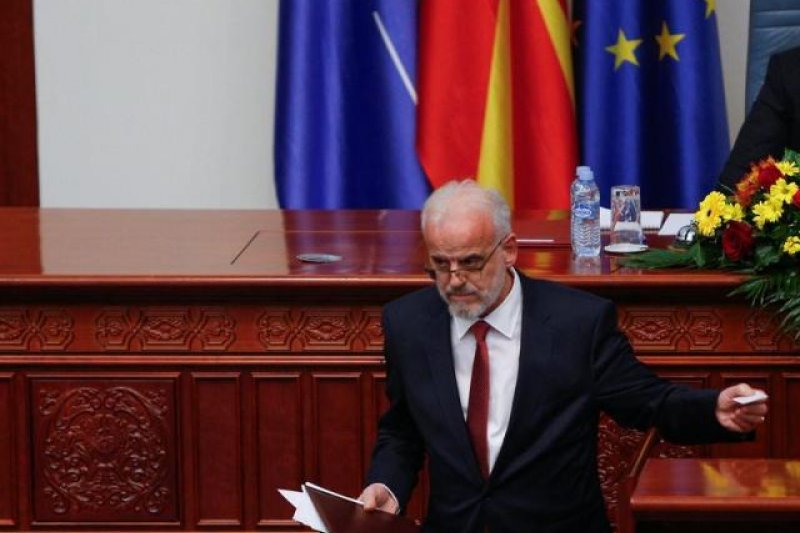North Macedonia's Parliament Elects First Ethnic Albanian PM
The parliament in North Macedonia elected the country's first ethnic Albanian prime minister, tabbing Talat Xhaferi to head a new caretaker government tasked with organizing free and fair parliamentary elections on May 8.
The 61-year-old Xhaferi, whose cabinet will include ministers nominated by the opposition, was elected on January 28 with 65 votes in favor out of the 120 seats in parliament, while the main opposition VMRO-DPMNE deputies did not vote.
"I will advocate for ethnic balance and harmony between the communities," Xhaferi told lawmakers, speaking in both the Macedonian and Albanian languages.
VMRO-DPMNE , the largest opposition party, proposed its own candidate and opposed Xhaferi’s candidacy.
Xhaferi served as parliament speaker but resigned on January 25 ahead of his election as caretaker prime minister.
About one-quarter of North Macedonia's 1.8 million inhabitants are ethnic Albanians. Tensions have persisted between the majority population and Albanian minority ever since the country's 1991 declaration of independence from the former Yugoslavia.
Tensions erupted into a six-month armed conflict between ethnic Albanian rebels and government forces in 2001, which only ended through the intervention of the international community.
A peace deal granted greater rights to the Albanian minority -- which had complained of discrimination and limited opportunities and representation -- and the two communities have lived in relative peace with no major incidents in recent years.
This is the third time since 2016 that North Macedonia has had a transitional or technical government.
Along with the May 8 parliamentary elections, voting will be held in the second round of presidential elections. The first round will be held on April 24.
North Macedonia began membership talks with the European Union in 2022.
The small Balkan country must meet certain criteria to join, including changing its constitution to recognize a Bulgarian minority -- a highly contentious issue because of the overlapping histories and cultures of Bulgaria and North Macedonia.













